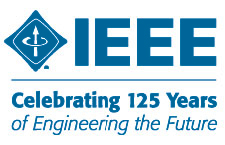
Con il comunicato stampa di seguito allegato, l'IEEE (Institute of Electrical & Electronics Engineers) ha ufficialmente ratificato la versione 2009 dello standard 802.11n che guida la realizzazione delle cosiddette wireless local area network (o in breve WLAN) ovvero delle reti locali dove il collegamento tra gli host è implementato senza l'ausilio del cablaggio.
In accordo ad IEEE, l'emendamento dello standard base 802.11 da poco approvato è stato progettato per rispondere al meglio alle crescenti esigenze provenienti sia dal mondo enterprise che da quello home/consumer in merito alla necessità di reti di tipo WLAN in grado di garantire, da un lato, la banda necessaria per le applicazioni di file transfer e, dall'altro, il data rate richiesto dalle applicazioni multimediali.


11 September – IEEE today announced that its Standards Board has ratified the IEEE 802.11n-2009 amendment, defining mechanisms that provide significantly improved data rates and ranges for wireless local area networks (WLANs). This new amendment to the IEEE 802.11 base standard is designed to help the data communications industry address the escalating demands placed on enterprise, home and public WLANs with the rise of higher-bandwidth file transfers and next-generation multimedia applications. WLANs based on IEEE 802.11 are widely deployed, with more than one million units shipping per day.
The IEEE 802.11 standard defines how to design interoperable WLAN equipment that provides a variety of capabilities including a wide range of data rates, quality of service, reliability, range optimization, device link options, network management and security.
The 560-page 802.11n amendment – “…WLAN Enhancements for Higher Throughput"– will enable rollout of significantly more scalable WLANs that deliver 10-fold-greater data rates than previously defined while ensuring co-existence with legacy systems and security implementations.
More than 400 individuals from equipment and silicon suppliers, service providers, systems integrators, consultant organizations and academic institutions from more than 20 countries participated in a seven-year effort leading to IEEE 802.11n’s ratification. Publication of the amendment is scheduled for mid-October.
Source: IEEE Press Release
Links



